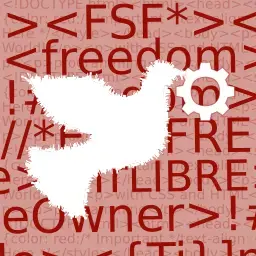

I mean, isn’t there Codeberg? I assume they could at least mirror their repository to there.


I mean, isn’t there Codeberg? I assume they could at least mirror their repository to there.


deleted by creator


It improves your mouse control (raw aim) by finding and isolating weaknesses, then forcing you to repeat mistakes over and over again. With carefully made scenarios and constant + thoughtful practice, this can improve your improvement pace significantly.


Disclaimer: I haven’t read the article yet — I’m just trying to get people to think. I get what you’re saying, but there’s another side to this: they are ex-IDF. Why did they leave? Not good enough pay, something else maybe. However, it’s a strong possibility that some of them left due to disappointments with the IDF, for ideological reasons. We shouldn’t shun people for where they worked, but rather check their integrity and competence. Who knows? They may be our greatest allies.
It is insanely configurable though, as shown by Zorin OS Lite.


Yep.


Yeah


Yep. I don’t remember where I bought it, but there is this hilarious notebook that I have:



This is a great thing, particularly when considering that many people also use low-end devices, in which there are limited amounts of RAM available.


Not a question, but you’ve written some fantastic articles, thanks — I’ve added your website to my RSS feed!
Revolt. It just needs a larger userbase.
From what I’ve heard, openSUSE Tumbleweed is the most stable rolling release distribution around. It automatically checks packages, before releasing them. As for desktop environments, Xfce is a great one, if you add some addons (e.g., Whisker menu).


The grim reaper, I assume.
Yes, that was a poor choice of words on my part; I do apologize about that.
Just to let you know, GrapheneOS uses AOSP (the base Android system) and sandboxed Google Play Services, making it compatible with 90% of all Android applications. From what I’ve heard (don’t take my word for it), the apps that have the least compatibility / more breakage are banking ones.


There is also LTSC, which is much lighter than regular Windows 11, and does not have the ridiculous requirements.


It means that a project isn’t hosted on a country that is actively hostile towards the libre software movement. Privacy is dependent on the country, because e.g. the NSA may try to backdoor projects hosted in the US more than in other countries.


Basically, Expat-like licenses do not use the copyleft system: When you distribute a project that’s copyleft licensed, you must give the exact same rights you were given (including the source code, license terms, etc). To resume this in 1 quote “the rights of one ends where the rights of the other begin”


Sorry for chiming in at about a year later, but I see some issues with the state of “Free Software”:
1: IMO, Libre Software is a better way to say it, since it doesn’t have the ambiguity that “Free Software” does. 2: Revolt is a perfectly fine replacement for Discord - it has almost no bugs, and works identically to the latter. 3: The average person does not, and will never code. Libre Software movements like the FSF should focus on more practical benefits of Libre Software, although not ignoring ethical concerns (e.g. never being locked out of your software is a big benefit, that covers both practical and ethical considerations)
Please do correct me if I’m wrong about something I said, but I wrote this with all the knowledge I currently have.
Yes, but a temporary mirror would still be great.